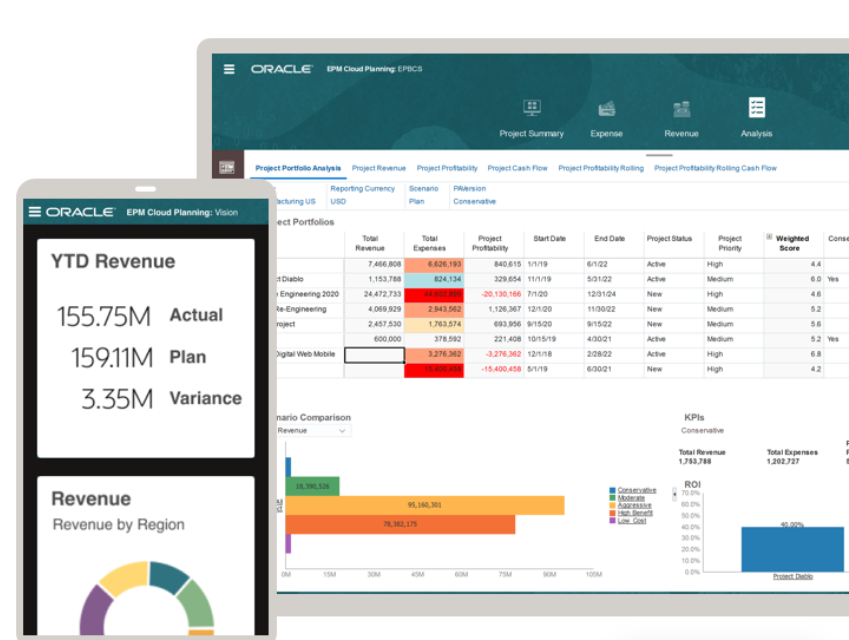
Three Compelling Reasons to Implement an Enterprise Performance Management (EPM) System
In today’s fast-paced business environment, organisations are constantly seeking ways to enhance their performance, streamline operations, and gain a competitive edge. One powerful tool that can help achieve these goals is an Enterprise Performance Management (EPM) system. If you’re on the fence about whether to implement an EPM system, here are three compelling reasons that might just tip the scales in its favour.
1. Enhanced Financial Visibility and Control
One of the primary benefits of an EPM system is its ability to provide comprehensive visibility into your organisation’s financial performance. By integrating various financial processes—such as budgeting, forecasting, and reporting—an EPM system consolidates data into a single, coherent view. This holistic perspective enables more accurate financial analysis and better decision-making.
Imagine being able to track your financial metrics in real-time, identify trends, and make adjustments before minor issues become major problems. With enhanced visibility and control, organisations can manage their finances more proactively, ensuring resources are allocated effectively and financial goals are met.
2. Improved Efficiency and Productivity
Efficiency is the cornerstone of any successful business operation, and an EPM system significantly boosts productivity by automating manual processes. Traditional methods of financial planning and reporting often involve cumbersome spreadsheets and time-consuming data entry. An EPM system streamlines these processes by automating routine tasks, such as data collection, consolidation, and report generation.
By reducing the time spent on administrative tasks, your team can focus on strategic activities that drive growth. The result? Faster turnaround times, fewer errors, and a more agile organisation that can quickly adapt to changing business conditions.
3. Enhanced Strategic Decision-Making
In the realm of business, making informed decisions is crucial to success. An EPM system provides powerful analytics and forecasting capabilities that enable organisations to make data-driven decisions with confidence. Advanced features, such as predictive analytics and scenario planning, allow businesses to evaluate different strategies and assess potential outcomes before committing resources.
With these insights at your fingertips, you can develop more effective strategies, anticipate market changes, and respond swiftly to emerging opportunities or threats. This level of strategic foresight is invaluable in maintaining a competitive edge and achieving long-term success.
In Conclusion
Implementing an Enterprise Performance Management system is a strategic move that can transform how your organisation manages its performance. From enhancing financial visibility and control to improving efficiency and productivity, and boosting strategic decision-making, an EPM system offers numerous benefits that can drive your business forward. In a world where agility and insight are key to staying ahead, an EPM system is not just an investment in technology but a vital tool for future success.

